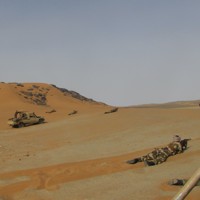Over the weekend, the National Movement for the Liberation of Azawad (MNLA) seized Kidal, Gao and Timbuktu, the three major cities of northern Mali that lie within the region the Tuareg rebel group refers to as “Azawad.” This development highlights the inability of the military-led junta currently ruling the country, the National Committee for the Restoration of Democracy and State (CNRDR), to stem the MNLA’s advance, despite having deposed Malian President Amadou Toumani Touré for his anemic response to this latest round of Tuareg rebellion. Before his overthrow, Touré had also come under fire from regional and international critics for his inability to definitively address the presence in Mali of al-Qaida in the Islamic Maghreb (AQIM), which has been increasingly active in the northern part of the country since 2007. With Mali’s territorial integrity under threat, the military in disarray and the CNRDR increasingly subject to significant diplomatic and economic pressures, there are concerns that AQIM may benefit from the mayhem reigning in the country.
AQIM is a descendant of jihadi terrorist groups that sought to replace the Algerian government with an Islamic state during the 1991-2002 Algerian civil war. Due to the effective targeting of these groups by the Algerian security forces, AQIM was largely pushed out of the country, but it found safe havens in northern Mali near the Algerian border and in the Wagadou forest near the border with Mauritania.
Algeria, Mauritania, Mali and Niger appreciated the transnational nature of the AQIM threat and attempted to craft a regional response accordingly. For example, in 2010, the four countries created a Joint Military Command in the southern Algerian city of Tamanrasset to direct combined operations against AQIM, increase reconnaissance capabilities and facilitate information-sharing. In cooperation with Malian security forces, Algeria and Mauritania conducted counter-AQIM operations in Mali and even secured the authority to pursue suspected terrorists across the border. Furthermore, Algeria provided Mali with training and equipment to tackle AQIM, but these were withdrawn in January in order to pressure Bamako to deal with the growing Tuareg insurgency. These efforts notwithstanding, regional security cooperation to address AQIM was ad hoc and inhibited by a range of regional tensions.

